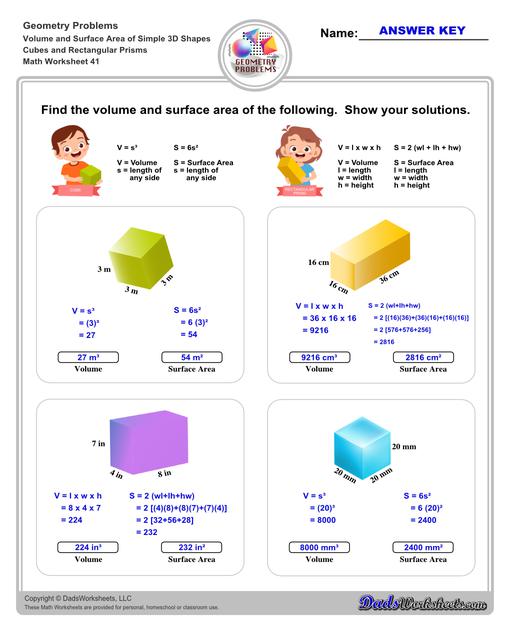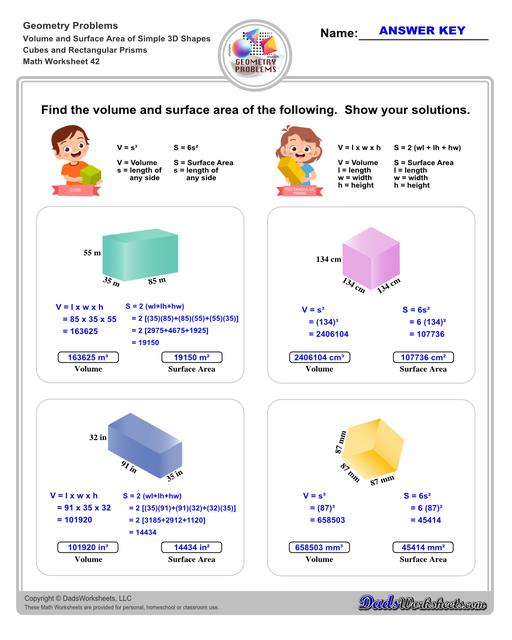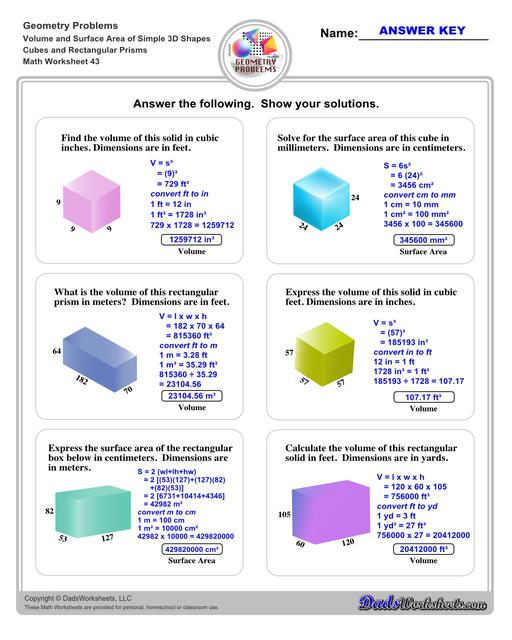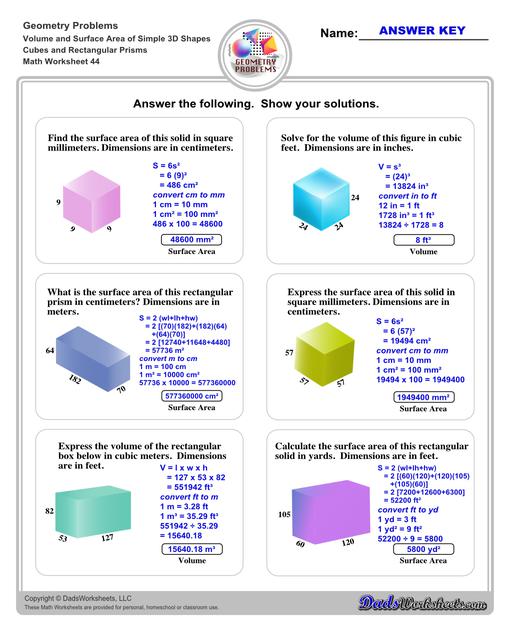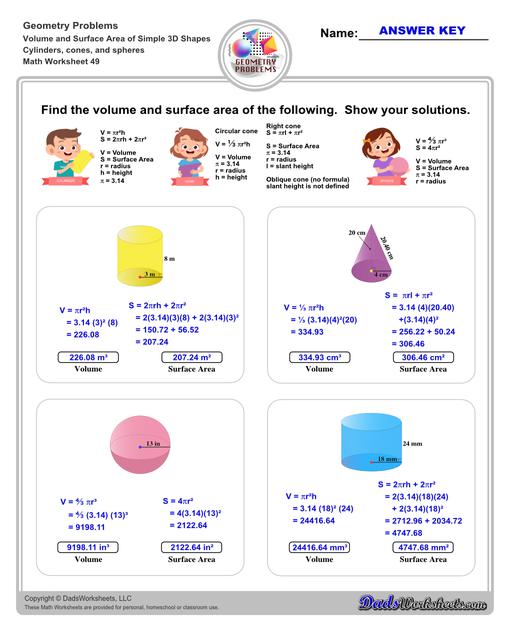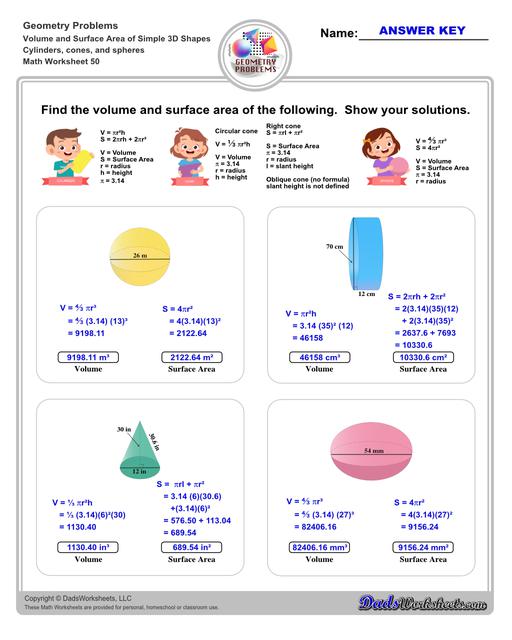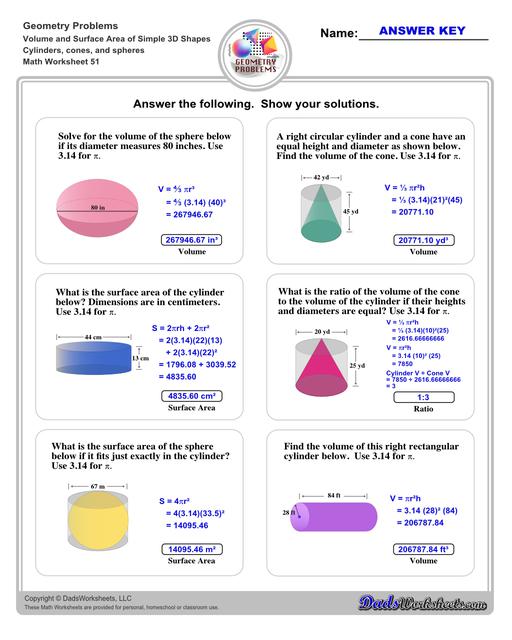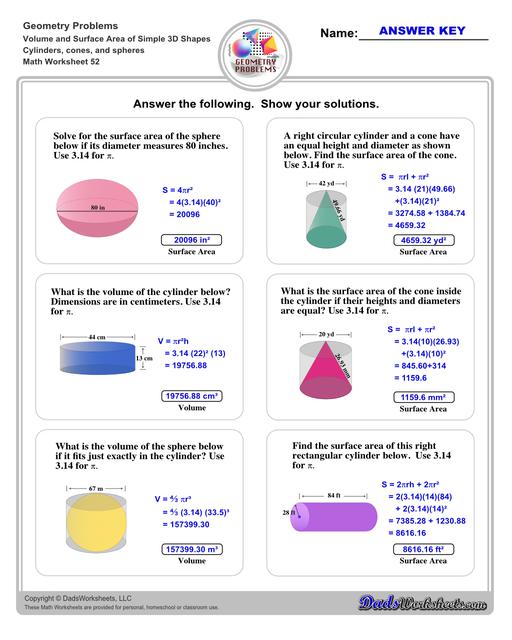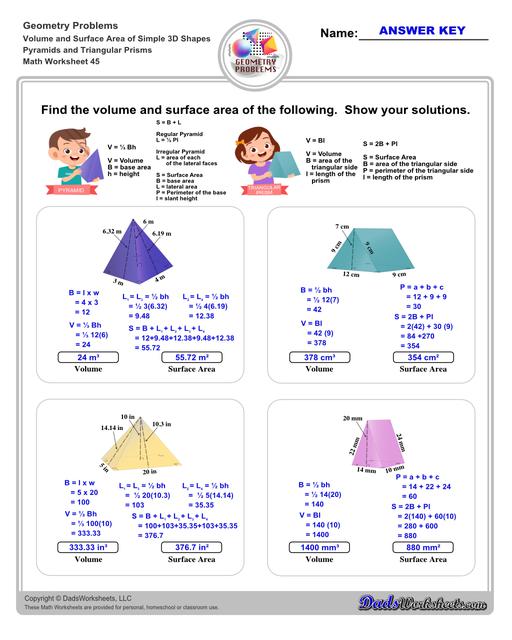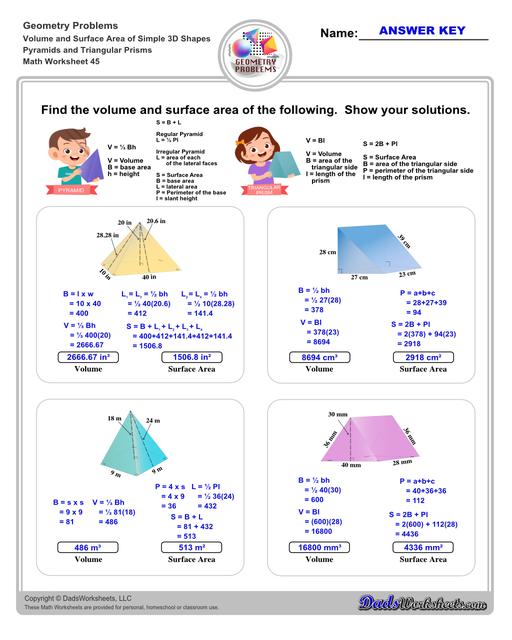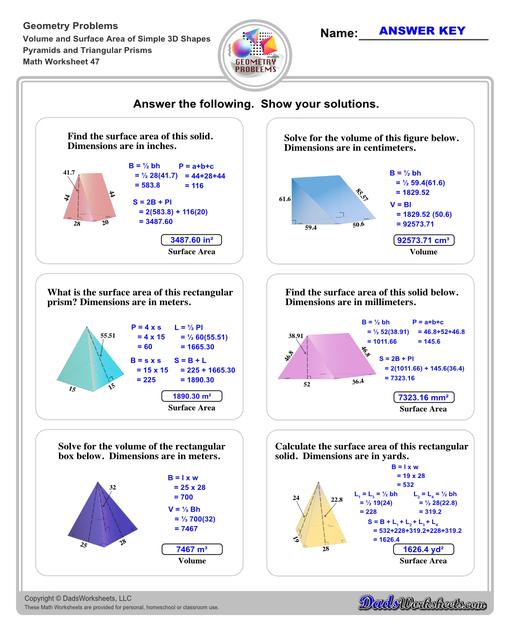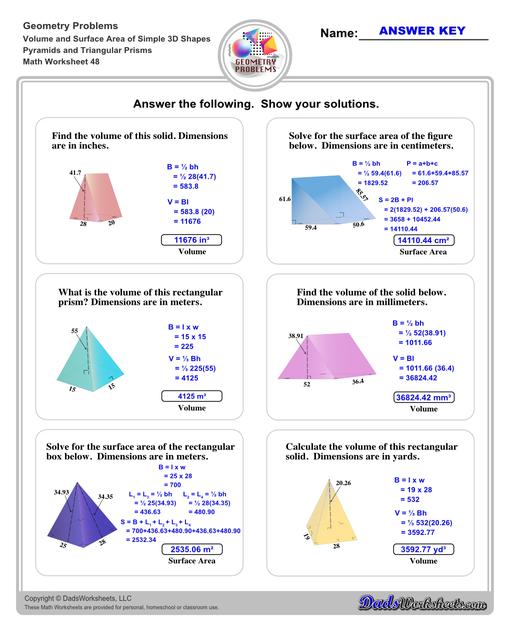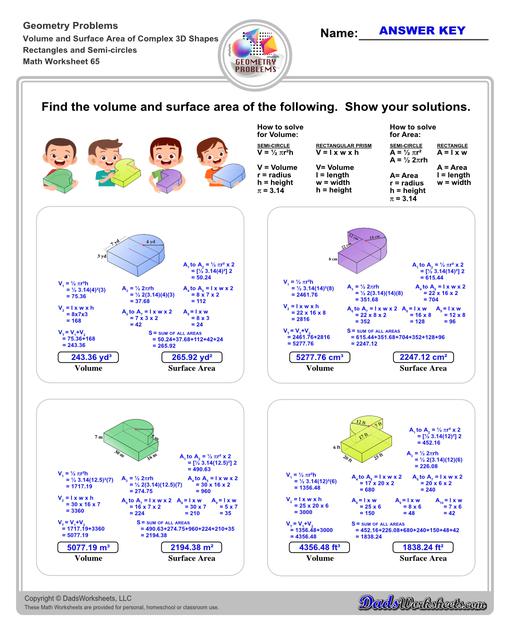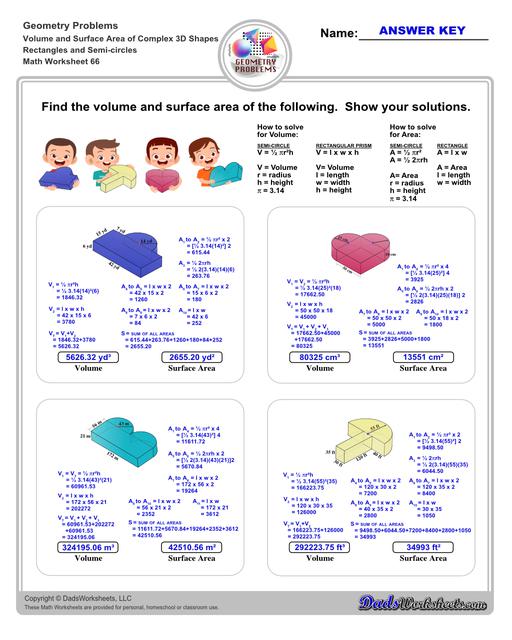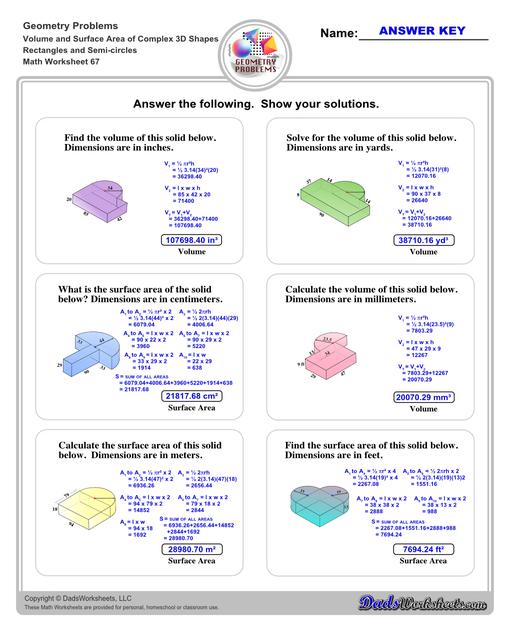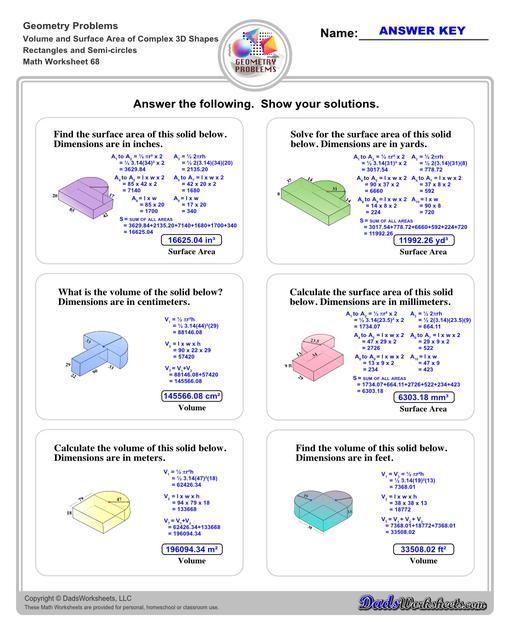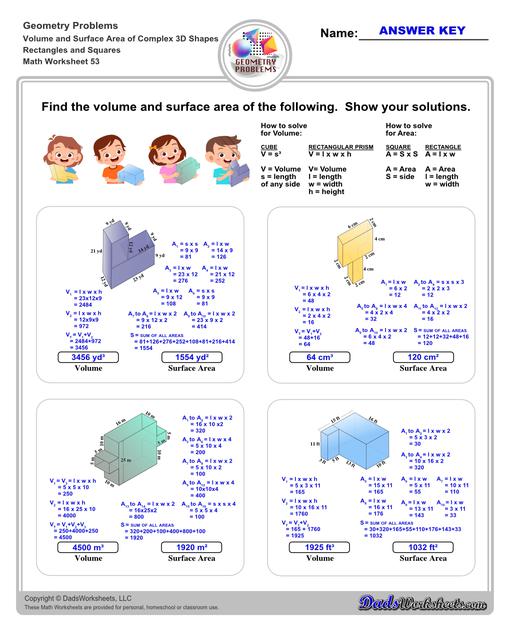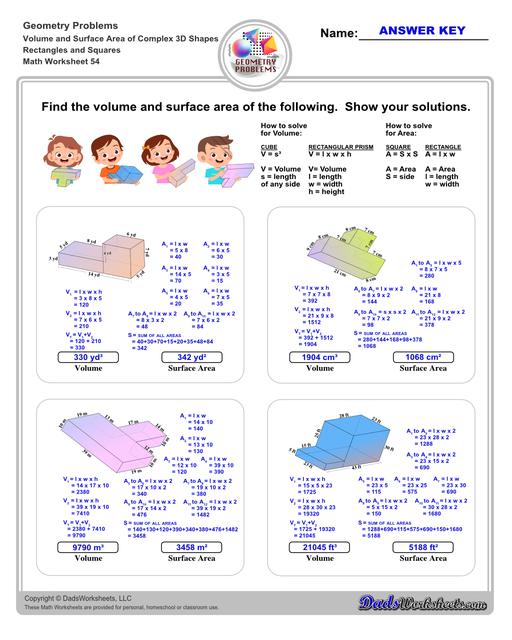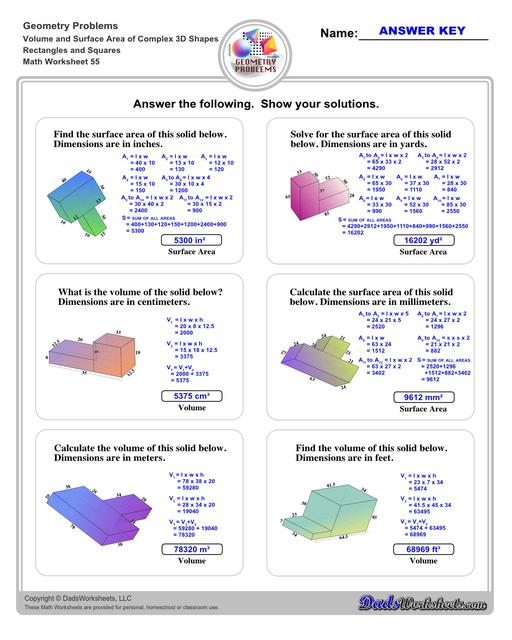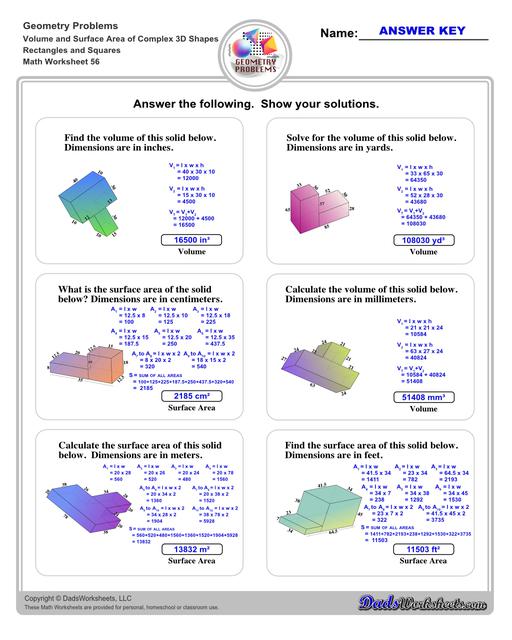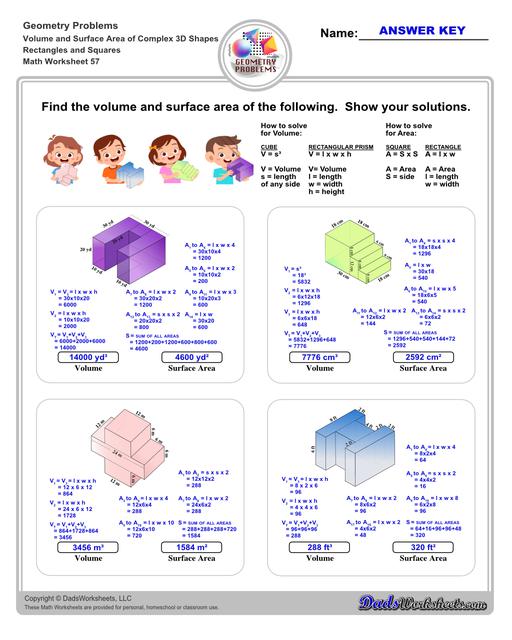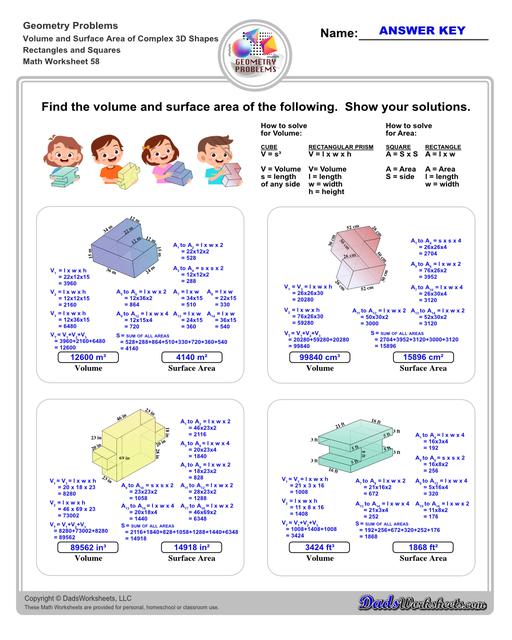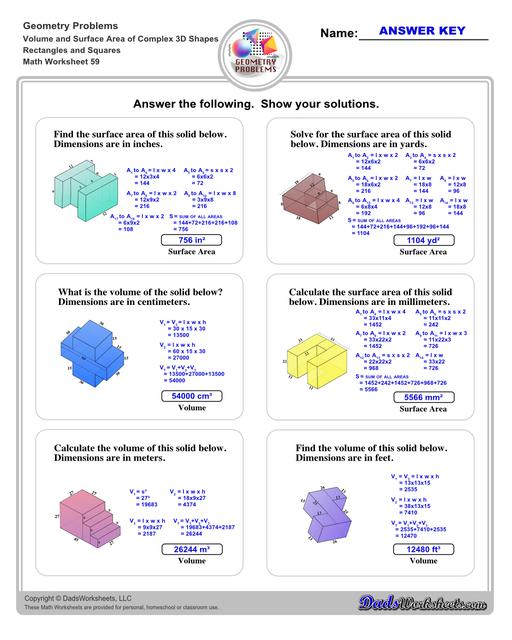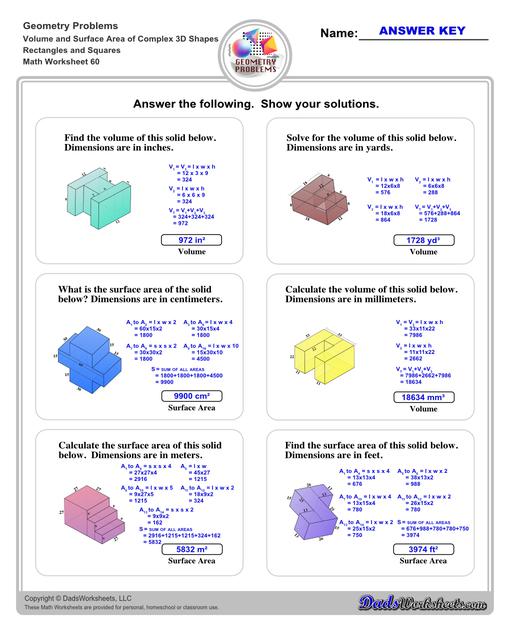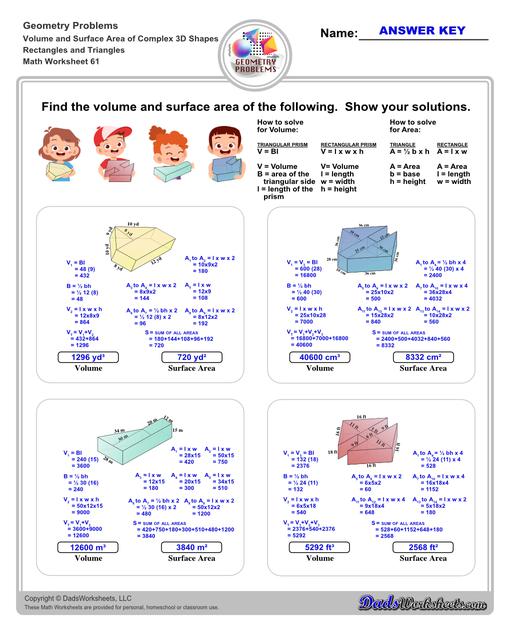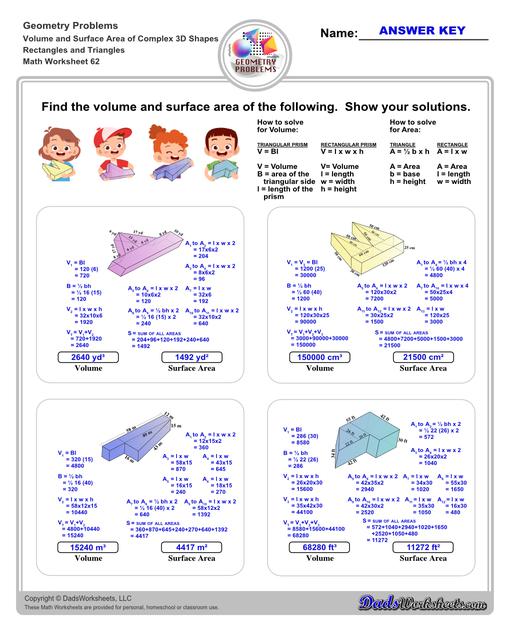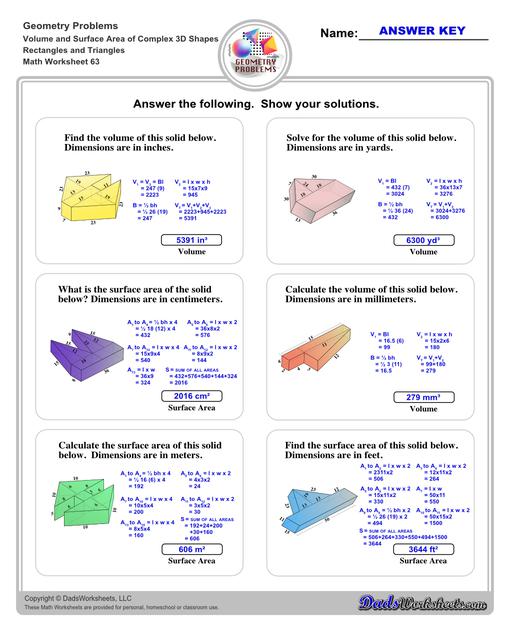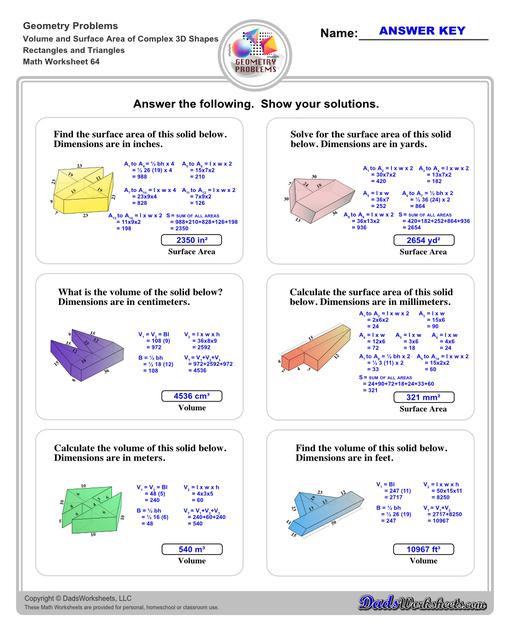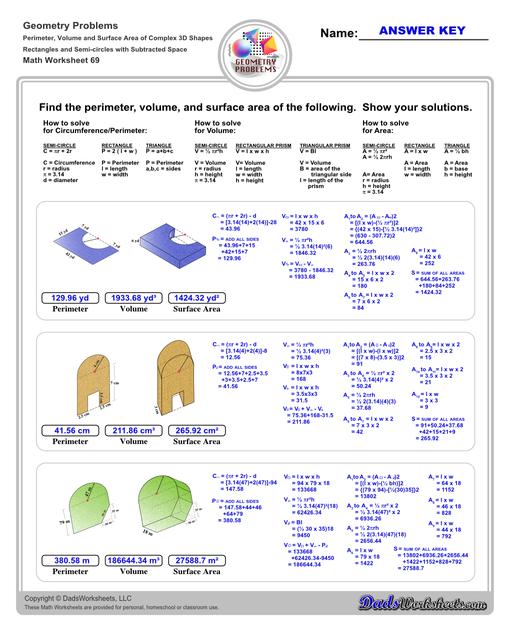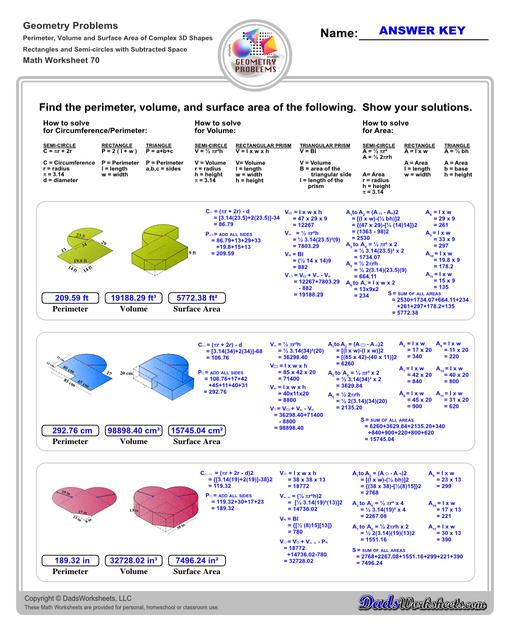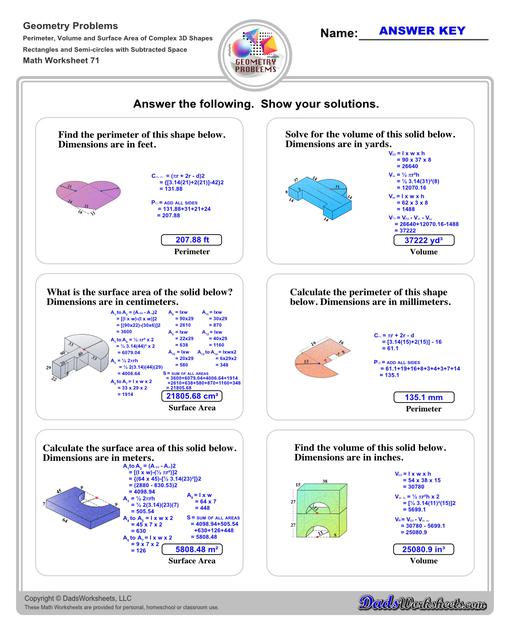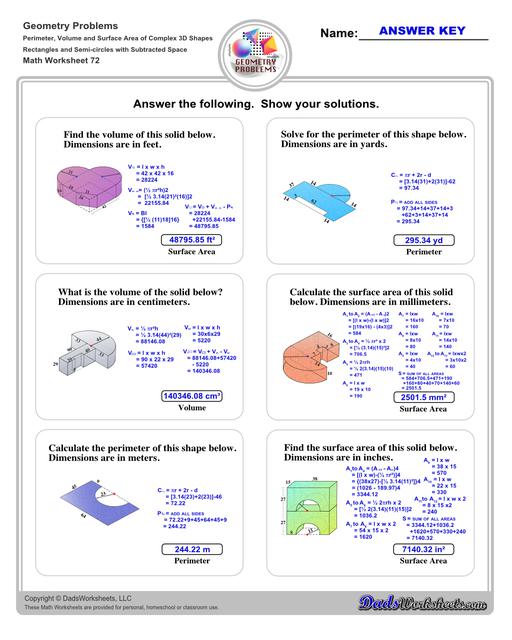Core Math Worksheets
Fraction Worksheets
Algebra
Other Worksheets
Place Value
Percentages
Rounding Numbers
Ordering Numbers
Standard, Expanded, Word Form
Mean Median Mode Range
Ratio Worksheets
Probability Worksheets
Roman Numerals
Factorization, GCD, LCM
Prime and Composite Numbers
Pre-Algebra
Geometry Worksheets
Blank Clocks
Telling Analog Time
Analog Elapsed Time
Greater Than and Less Than
Money
Arithmetic Sequences
Geometric Sequences
Venn Diagram
Graph Worksheets
Measurement & Conversions
Patterns and Puzzles
Color by Number
Holiday & Seasonal
Early Learning
Printables
Calculators
Math Worksheets by Grade
Worksheet News
Volume and Surface Area
The volume and surface area worksheets on this page start with requiring students to calculate area and perimeter of basic solids such as cubes, prisms, cones and spheres. Additional worksheets with compound shapes require students to calculate missing dimensions and use problem solving skills and strategies to calculate volume and surface area.
All of these worksheets include answer keys that break down the strategies used to solve the volume and surface area problems. In cases where multiple steps are required, each individual volume or surface area calculation is shown as well as how it is added or subtracted to get the final surface area and volume values for the answer.
Volume and Surface Area of Simple 3D Solids
Volume and Surface Area of Complex 3D Solids
Perimeter, Volume and Surface Area of Complex 3D Solids
Calculating Volume and Surface Area of Compound Solids
The worksheets on this page require students to calculate volume and surface area for solid shapes that composed from multiple extrusions or primitives. In some cases, the student is asked to calculate the perimeter of a 2D shape so that they can use the value to calculate the surface area of the extruded dimension. In other cases, the shapes are structured from subtracted solids, so the student will need to calculate a larger volume and then subtract the removed volume to arrive at the correct volume measurement.
Calculating the Surface Area of Simple Solids
Surface area of solids is calculated by adding up the surface area of the solid's individual surfaces. Here's a summary of the basic surface area formulas for primitive solids...
| Shape | Formula |
|---|---|
| Area of Cube | |
| Area of Right Rectangular Prism | |
| Area of Sphere | |
| Area of Cylinder | |
| Area of Cone |
Calculating Volume of Simple Solids
The volume of simple three dimensional solids van be calculated using the basic formulas you learned in 5th, 6th and 7th grade math classes. Here's a list of these volume formulas that you can use when completing the worksheets on this page...
| Shape | Formula |
|---|---|
| Volume of Cube | |
| Volume of Right Rectangular Prism | |
| Volume of Sphere | |
| Volume of Cylinder | |
| Volume of Cone |

